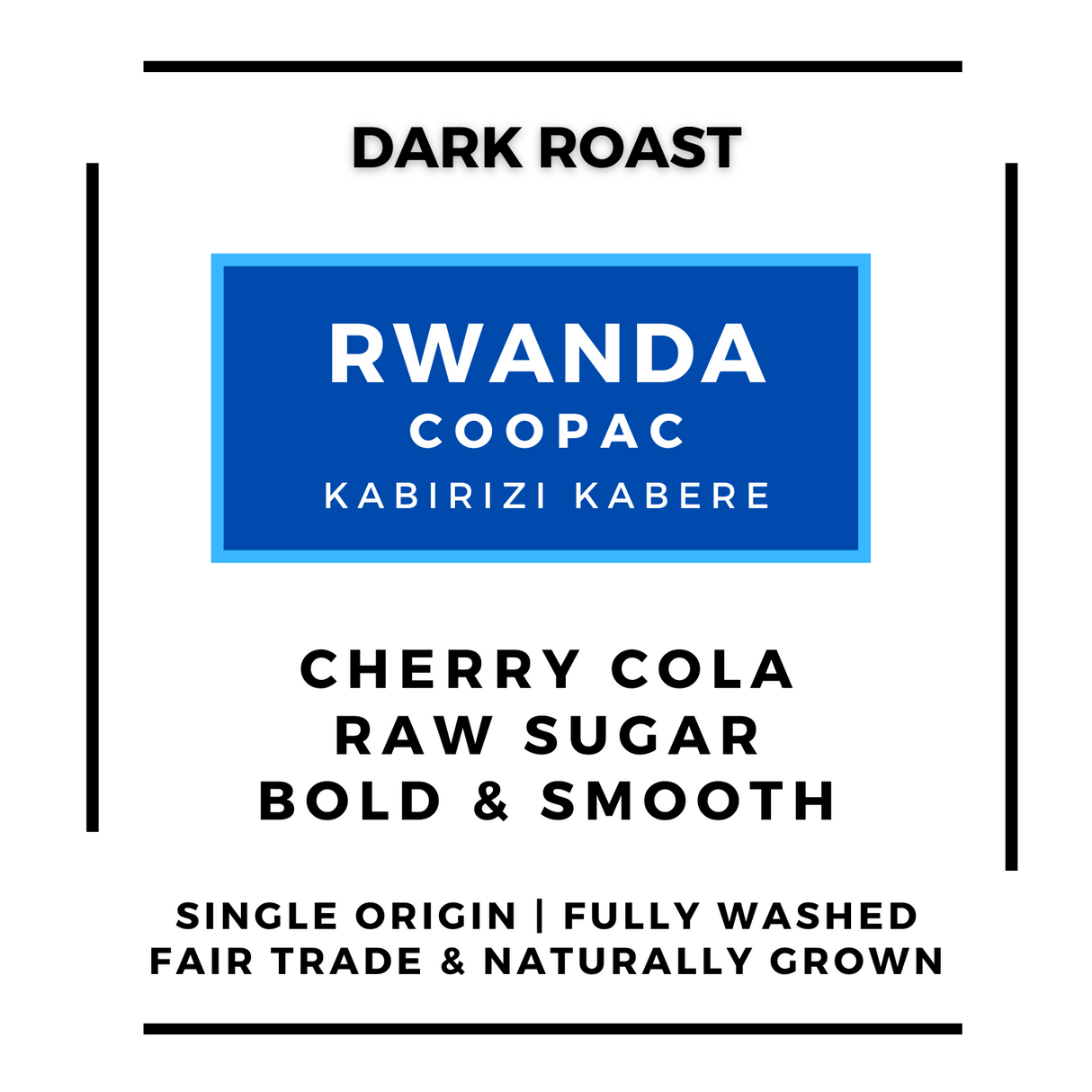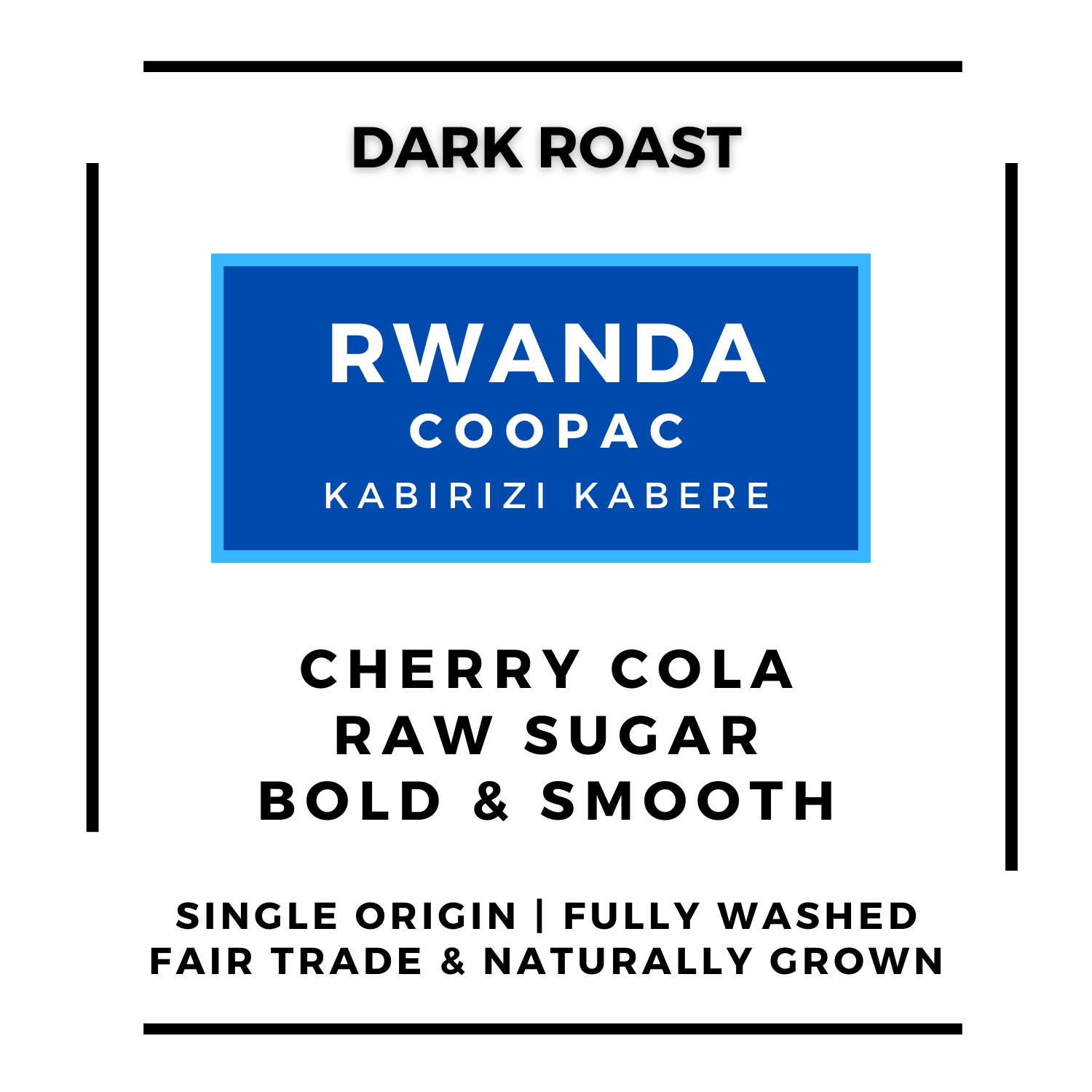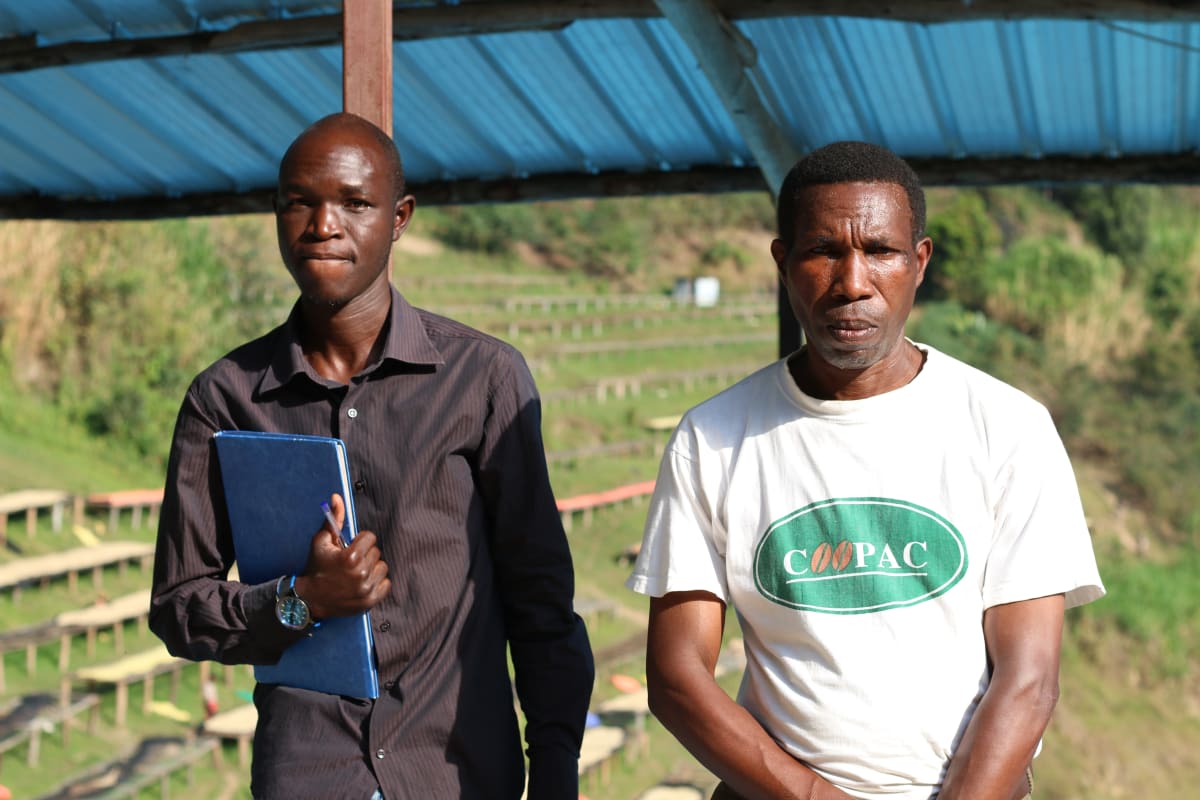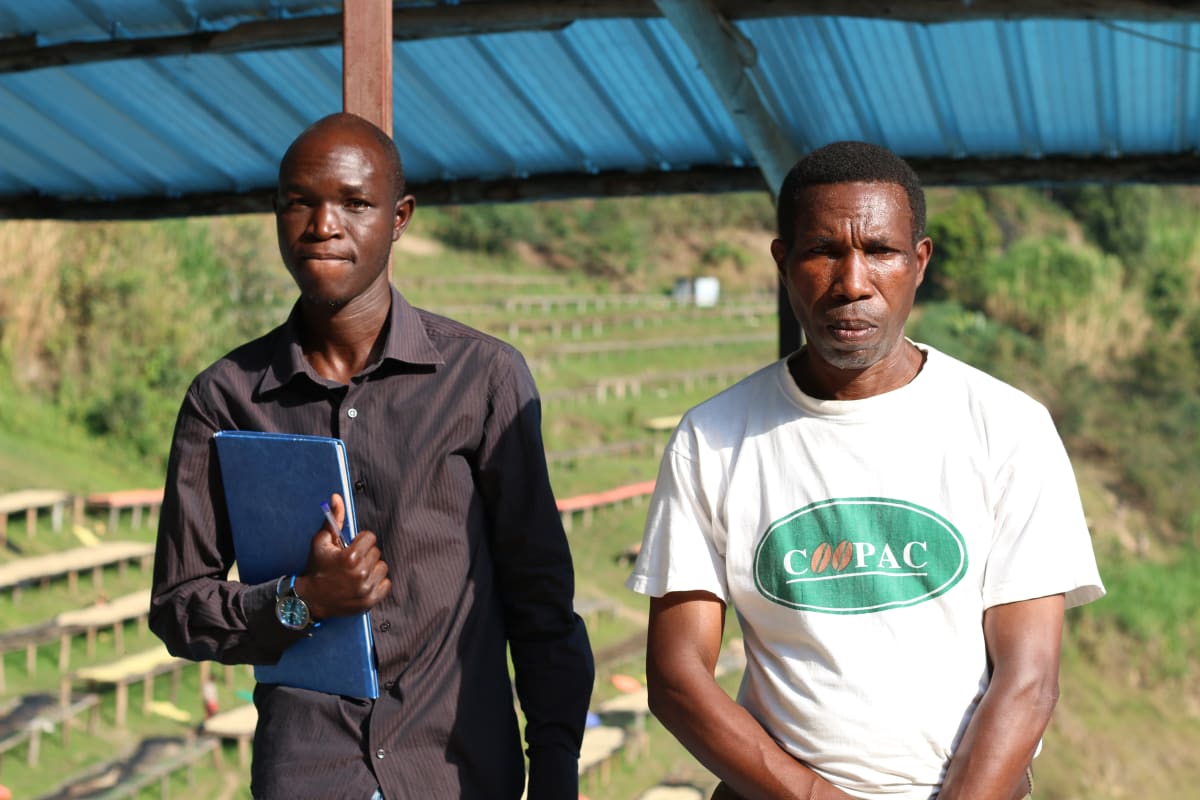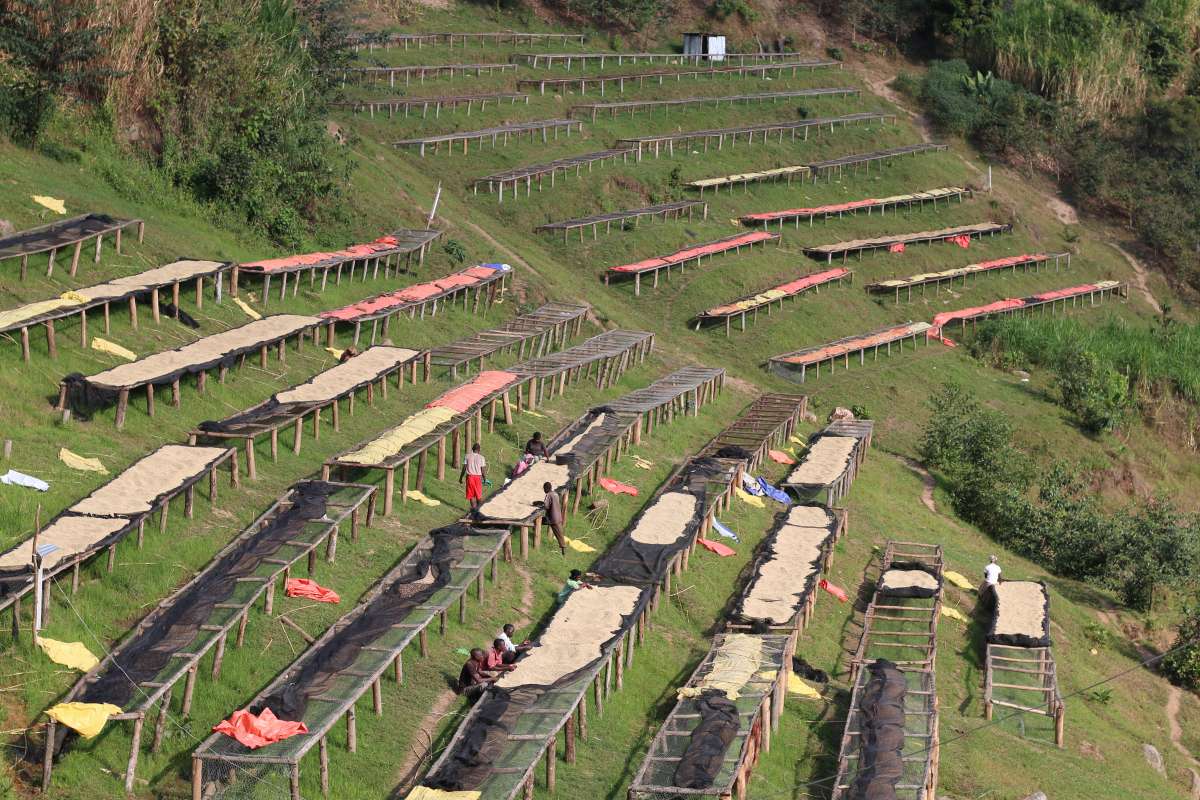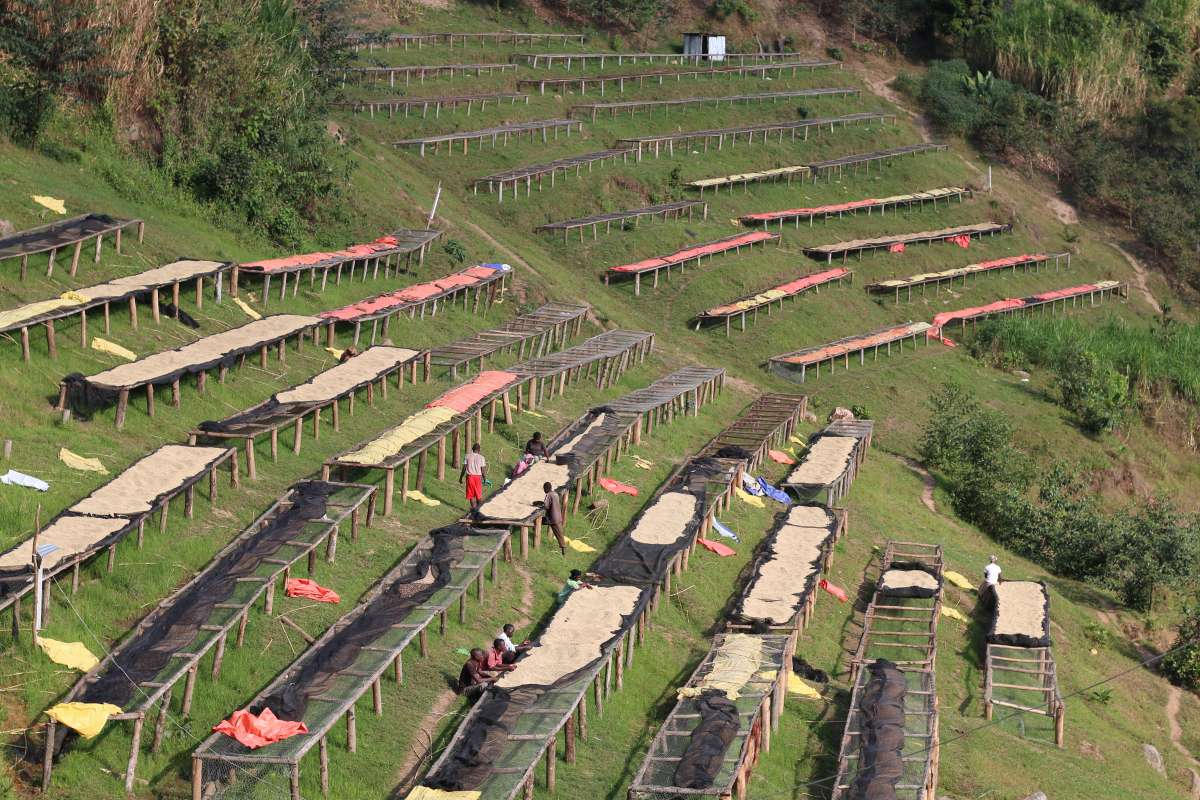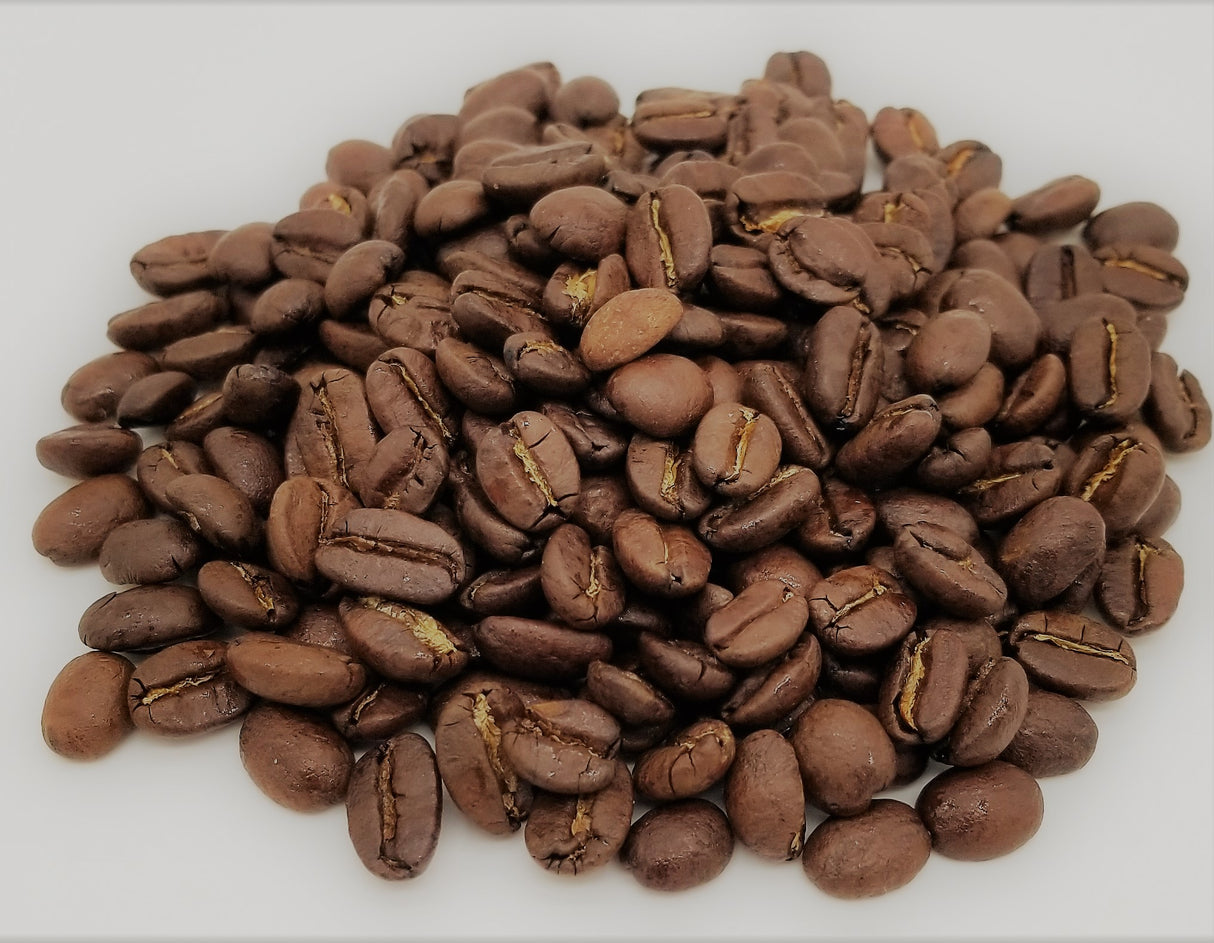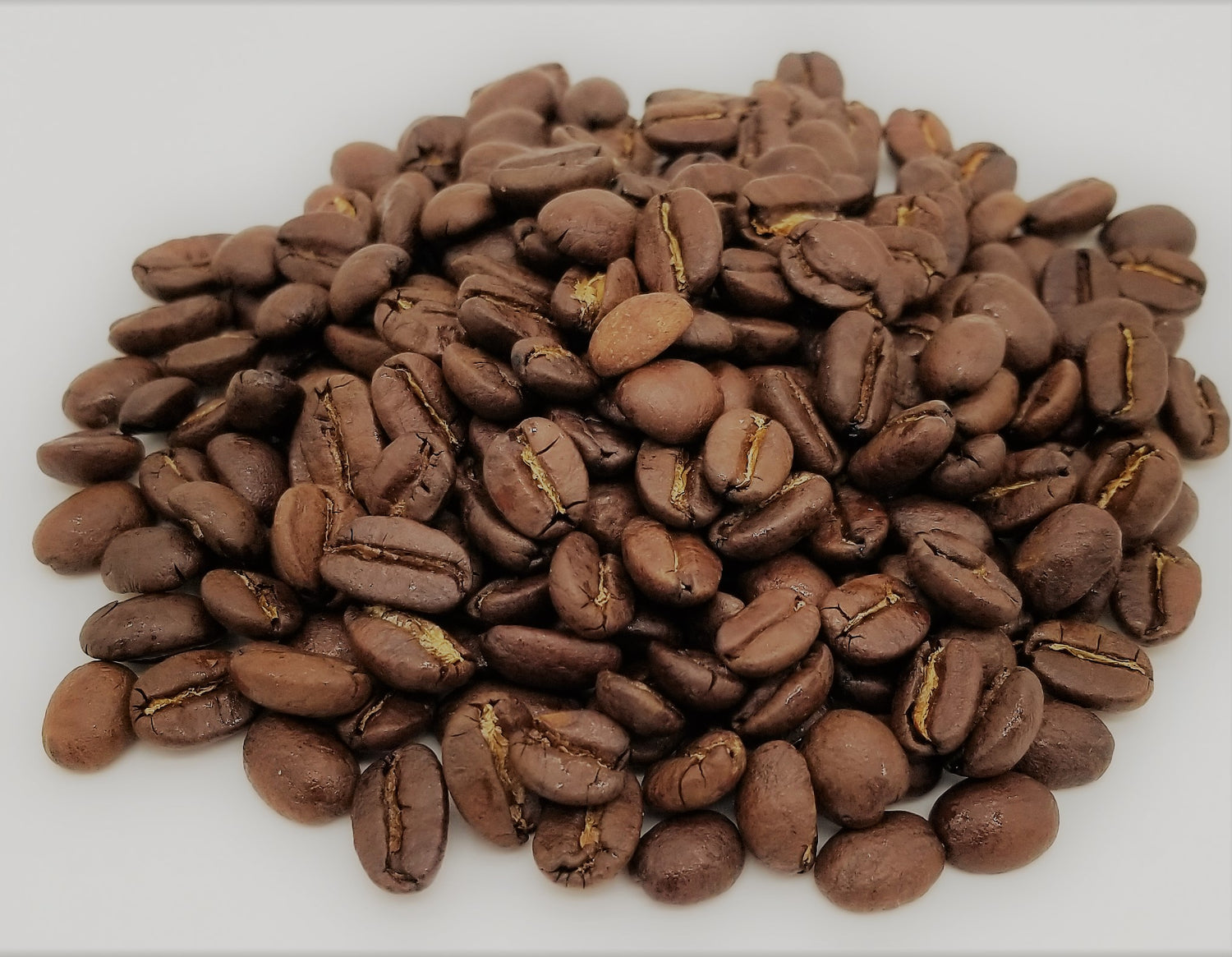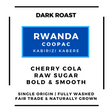Fig Leaf Coffee Company | SKU:
Rwanda Coopac - Kabirizi Kabere Roasted Coffee
Regular price
$2850
Unit price
/
Unavailable
Shipping calculated at checkout.
Rwanda Coopac - Kabirizi Kabere Roasted Coffee - 16 oz. / Whole Bean is backordered and will ship as soon as it is back in stock.
Couldn't load pickup availability
Care information
Care information
- Always store your coffee away from heat, sun and moisture.
- Do not put it in the freezer or refrigerator.
- Try and grind right before you brew your coffee for optimal flavor.
Delivery and Shipping
Delivery and Shipping
- If we receive your order before noon on a standard business day, we will ship your order the same day.
- Shipping is calculated based on your location, package size and speed of requested service.
- Most orders are shipped with insurance unless you choose economy shipping.
Description
Description
Summary
Grower: COOPAC Cooperative, Kabirizi Washing Station
Variety: Bourbon, Mayaguez
Region: Rutsiro and Rubavu Districts, Western Province- near Lake Kivu,
Harvest: February - May
Altitude: 1,500 - 2,000 Meters above sea level
Soil: Volcanic loam
Process: Fully washed and dried on raised beds
Certified: Fair Trade and Naturally Grown
There are 975 growers represented by the COOPAC subgroup called COOPROCAKI: Coopérative des Producteurs du Café de Kivumu. These producers grow coffee in volcanic soil, harvesting cherry and delivering them the same day to the Kabirizi washing station for purchasing. At the mill, the coffee is depulped the day of delivery, fermented dry for 12 hours and then given a 24-hour wet fermentation or a "soak," and then washed three times to remove the mucilage. Coffee is then dried in mechanical dryers or raised beds for about 2–3 weeks.
Flavor Profile: This coffee has a very big body with a syrupy mouthfeel. It is sweet with raw sugar overtones and cherry cola highlights (but not overwhelming). It has a light anise note on the back end. It finishes with a silky smoothness making it easy to drink.
Details
COOPAC is a Fair Trade–certified cooperative located near Lake Kivu on the steep slopes of volcanic mountains. The organization founded by Emmanuel Rwakagara, who is the president of COOPAC as well as the owner of the Gishamwana Island coffee estate. COOPAC began with 110 farmers in April 2001, and currently has 8,000 members contributing coffee from Ack, Ubuzima, Tuzamurane, Kopabm, Abakundakurima, and Abanyamurava. With over 50 washing stations along the northern landscape of Lake Kivu, COOPAC exports 150 containers of Fair Trade certified coffee annually.
COOPAC is committed to environmental and social sustainability in addition to producing high-quality coffee. Waste by-products from processing are used as fertilizer rather than discarded into the lake, and shade trees are distributed to farmers to prevent soil erosion. COOPAC has assisted in the construction of a school, health-care clinics, and roads and bridges in the community. The cooperative also has a program to distribute cows and goats to the most productive farmers and provides farmers with an agricultural advisor to teach the latest production methods.
Payment & Security
Payment methods
Your payment information is processed securely. We do not store credit card details nor have access to your credit card information.

